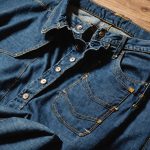Overview of Ethical Fashion
Ethical fashion is a key topic in today’s market, bringing significant impact through its focus on sustainability and social responsibility. At its core, ethical fashion aims to produce clothing in a way that minimises harm to people and the environment. It ensures fair treatment of workers and reduces carbon footprints.
Sustainability is a critical component, emphasising eco-friendly materials and practices. Brands utilise resources like organic cotton and recycled polyester, aiming to lower environmental impact. Social responsibility extends beyond materials, encompassing fair wages and safe working conditions, contributing to positive societal change.
Consumer habits are evolving, particularly among UK millennials who prioritise ethical considerations when choosing brands. Recent research indicates that a significant proportion of this demographic prefers purchasing from sustainable companies. Statistics reveal that over 60% of UK millennials actively seek ethical brands, showcasing a remarkable shift towards conscious consumerism.
This growing trend not only pressures the fashion industry to adopt more responsible practices but also empowers consumers. By making informed choices, individuals drive demand for ethical options, fostering a significant transformation within the industry. The convergence of sustainability and social responsibility highlights the importance of ethical fashion in shaping a better future.
Popular Ethical Fashion Brands for UK Millennials
Ethical fashion has seen a surge in popularity, particularly among UK millennials. Their focus on sustainable fashion emphasises a preference for brands prioritising ethical practices. Let’s explore three prominent UK ethical brands shaping this movement.
Brand One: [Brand Name]
This brand distinguishes itself with its dedication to ethical sourcing and social responsibility. Known for its responsibly produced clothing, it gains consumer loyalty through transparency and commitment to fair labour practices. Popular product lines feature versatile, eco-friendly materials like organic cotton, appealing to eco-conscious individuals.
Brand Two: [Brand Name]
With a mission centred around reducing environmental impact, this brand stands out for using recycled and biodegradable materials. Consumers praise its innovative approach, noting the positive community impacts. Offering a range of sustainable fashion options, it continuously seeks to enhance the ethical production process.
Brand Three: [Brand Name]
Differentiated by its high ethical standards, the brand excels in consumer engagement. Through customer feedback and social media interaction, it builds a strong sense of brand loyalty. Special features include limited collections designed to minimise waste. Integrating its fashion pieces into one’s wardrobe ensures a stylish yet environmentally friendly choice.
The Rise of the Ethical Fashion Movement
The ethical fashion movement has gained significant momentum over the years, evolving from a niche concern to a mainstream priority. Initially rooted in small-scale initiatives, this movement sought to address unethical production practices prevalent in the fashion industry. Today, it underpins a global shift toward sustainability and social responsibility, driven by increased consumer awareness and demand for transparency.
Key drivers influencing this movement include the rise of digital media platforms, which amplify both advocacy and awareness. These platforms facilitate dialogue around environmental issues and fair labour practices, pushing brands to adapt. An ethical consumer base, particularly millennials, demands accountability, driving the change.
In recent years, notable trends within the ethical fashion sector have emerged, especially among the millennial demographic. This group values authenticity and places trust in brands that uphold ethical standards. They are inclined toward sustainable practices, choosing brands aligned with their social values. Notably, the ethical fashion movement within this demographic is characterized by active participation in social media advocacy, showcasing their preferences and influencing peers.
By connecting with more ethical brands and educating themselves about the movement’s history and impact, millennials continue to propel ethical fashion into the mainstream.
Making Informed Choices: Tips for Sustainable Fashion Shopping
Navigating sustainable shopping can feel daunting, yet mindful awareness transforms ethical consumption into a rewarding experience. Begin your journey by understanding materials: favour organic cotton, hemp, or recycled polyester. These eco-friendly choices reduce environmental impact while supporting companies prioritising sustainability. Delve into sourcing practices—transparent brands will disclose the origins of their materials and labour conditions, aligning with both sustainability and social responsibility.
Consumers should assess brand certifications, such as Fair Trade or GOTS, to ensure ethical standards. Verify credibility through independent third-party audits to dispel greenwashing concerns.
Strategies extend to supporting brands with sustainability at their core, even if purchases cost slightly more. Over time, investing in quality reduces waste and promotes ethical production cycles. Maintaining your style is paramount; approach fashion not just as consumption but as curation. Mindful shopping sharpens personal aesthetics and aligns with social values.
As you refine your wardrobe, share experiences within your community. Inspire peers by showcasing ethical fashion finds, fostering collective responsibility. Engaging in dialogues about sustainable fashion enriches personal understanding while advancing global consciousness.
Visual Impact: Integrating Ethical Fashion into Your Wardrobe
Ethical fashion isn’t just about purchasing items from sustainable brands; it’s about weaving these conscious choices into your everyday style. A well-curated wardrobe that reflects your values is attainable and impactful.
Building a Capsule Wardrobe with Ethical Pieces
A capsule wardrobe is the foundation for sustainability. It includes essential garments that offer versatility across seasons. Consider investing in classic pieces from ethical fashion brands, such as a chic organic cotton tee or a tailored recycled polyester blazer. These staples are not only eco-friendly but also timeless, ensuring longevity and reducing the need for frequent replacements. Over time, high-quality pieces contribute significantly to sustainability by encouraging less waste.
Styling Tips for Sustainable Fashion
Mixing and matching ethical fashion style pieces offers endless possibilities for various occasions. A linen blouse can elevate a casual day look or complement an evening outfit. Sustainably sourced accessories like hemp bags or eco-jewellery can enhance your appearance without compromising values. Seek sustainable fashion inspiration from online platforms highlighting innovative style ideas to maintain freshness in your wardrobe.
Sharing Your Ethical Fashion Journey
Documenting and sharing your journey on social media opens discussions on sustainability and spreads awareness. Engage with community groups that support ethical fashion initiatives to inspire others. Consider potential collaborations with ethical brands, amplifying visibility and empowering more sustainable choices.











